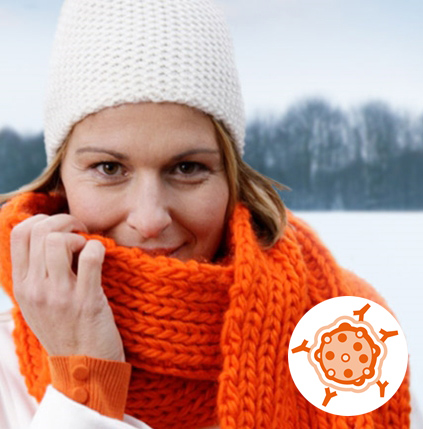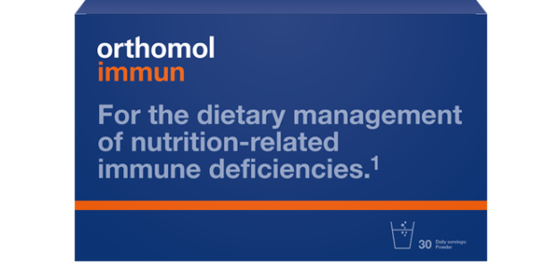

Orthomol Immun –
Strengthening your defence mechanisms
Using nutritional medicine to support the immune system
Orthomol Immun is a dietary food for special medical purposes. It is suitable for the dietary management of nutrition-related immune deficiencies.
Vitamins, trace elements, phytonutrients
Orthomol Immun contains important micronutrients for the immune system.
- Vitamin C, vitamin D, zinc, selenium, copper, folic acid, vitamin A, vitamin B6 and vitamin B12 contribute to the normal function of the immune system.
- Vitamin C, vitamin E, vitamin B2, as well as zinc, selenium, copper and manganese contribute to the protection of cells from oxidative stress.
- Vitamin A, vitamin B2, biotin and niacin contribute to the maintenance of normal mucous membranes.
- Zinc plays a role in cell division, vitamin A in cell specialisation.


